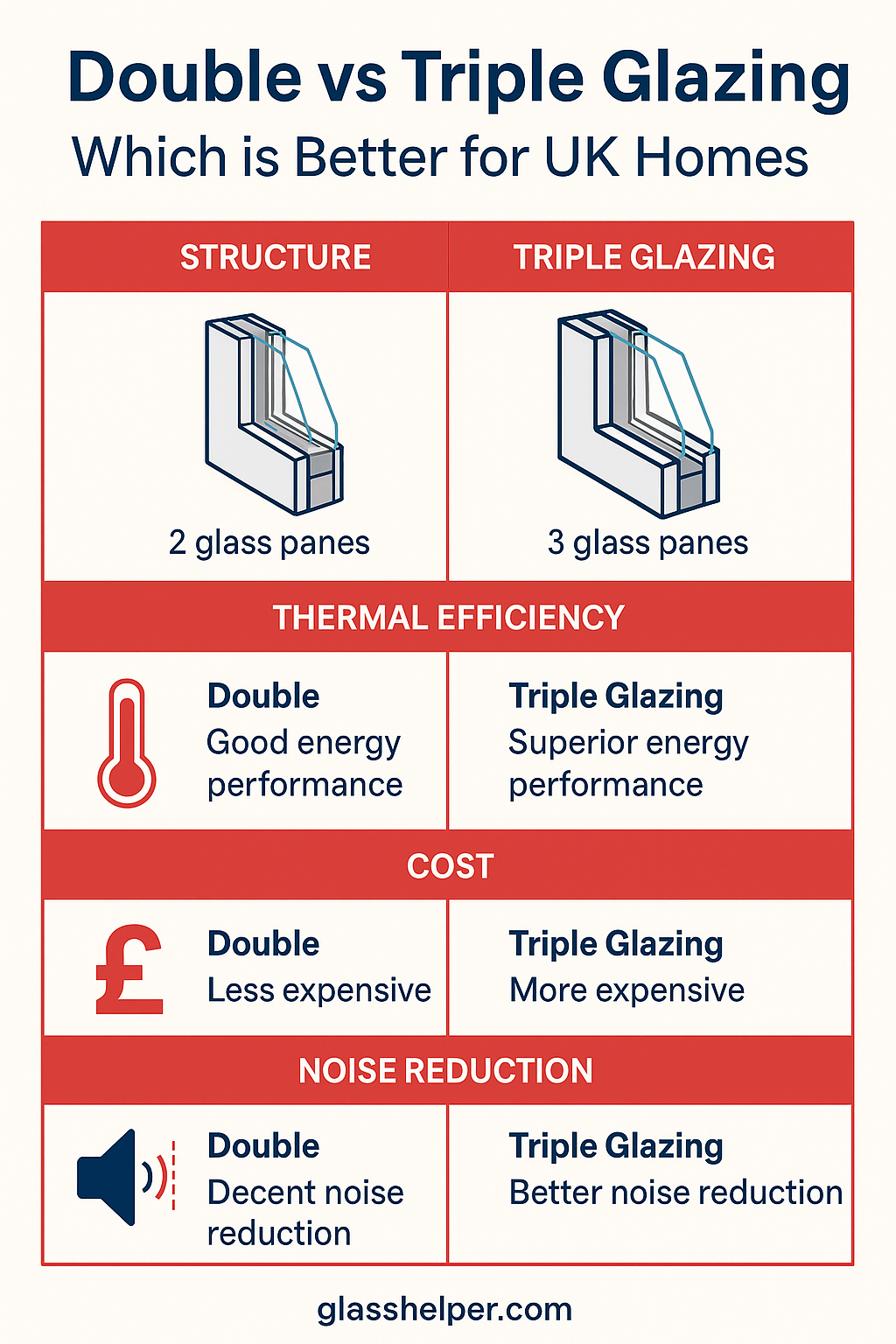Double vs Triple Glazing: Which is Better for UK Homes?
Glazing Guide · 2025
Read time: ~7 mins · Updated: 29 Sep 2025
Energy bills, comfort, and noise control are top concerns for UK homeowners. Choosing between double glazing and triple glazing can have a big impact — and the right choice may also involve using tempered safety glass or laminated units depending on location and building rules.

What is double & triple glazing?
Double glazing uses two panes of glass separated by a spacer (air/argon) to reduce heat loss and improve insulation.
Triple glazing adds a third pane and spacer, delivering lower U-values (better thermal efficiency) and, with the right build-up, more sound insulation. For impact-prone or low-level areas, consider tempered glass or laminated options within the unit.
Performance comparison
Typical UK values (actual performance varies by spacer gas, coatings, and frame quality):
| Feature | Double Glazing | Triple Glazing |
|---|---|---|
| U-value (heat loss) | ~1.2–1.6 W/m²K | ~0.8–1.0 W/m²K |
| Noise reduction | ~25–35 dB | ~30–40 dB |
| Cost (approx per window) | £400–£600 | £550–£850 |
| Lifespan | 20+ years | 30+ years |
| Weight & frame demands | Lighter; fits most frames | Heavier; needs deeper, stronger frames |
Key benefits of triple glazing
- Lower U-values for superior thermal performance (reduced heat loss in winter).
- Improved comfort — fewer cold spots and drafts near windows.
- Better noise control in busy or urban locations (build-ups with laminated panes help most).
- Reduced condensation thanks to warmer internal pane temperature.
- May assist with EPC rating improvements and long-term value.
Trade-offs & drawbacks
- Higher cost (often 30–50% more than double glazed units).
- Heavier and thicker — may require new frames rather than retrofitting into old ones.
- Slightly lower light transmission vs equivalent double glazed units.
- Marginal efficiency gains in milder regions if you already have modern double glazing.
Ready to choose the right unit?
Explore custom glass options and learn about
tempered safety glass used in modern glazing systems.
References:
GreenMatch UK,
Everest Windows,
WindowWise
Need help deciding between double and triple glazing?
Frequently Asked Questions
Does triple glazing always save more on heat bills?
If your current glazing is older or inefficient, yes—triple glazing reduces heat loss and can lower energy costs over time.
Is the extra cost justified?
It depends on climate, orientation, existing insulation and how long you’ll stay. In colder areas or noisy zones, the benefits are clearer.
Will triple glazing reduce natural light?
Slightly — there’s an extra pane. High-transmission coatings can minimise the effect.
Can I retrofit triple glazing to older frames?
Usually not. Most older frames lack the depth or strength; new frames are typically required.
How long do glazed units last?
Modern double glazing: ~20–25 years; triple glazing: ~30+ years with proper installation and sealing.
